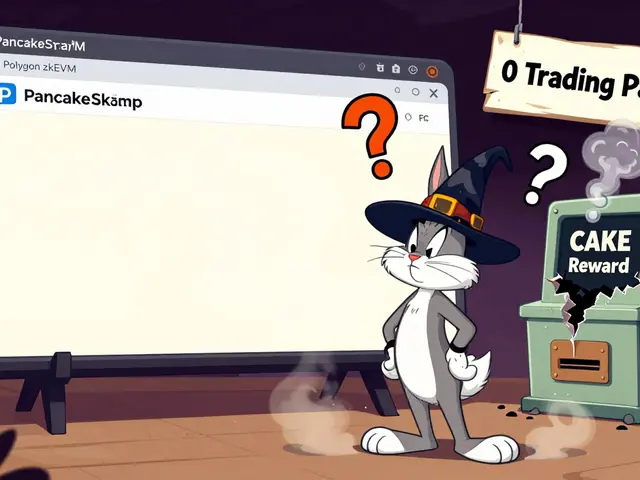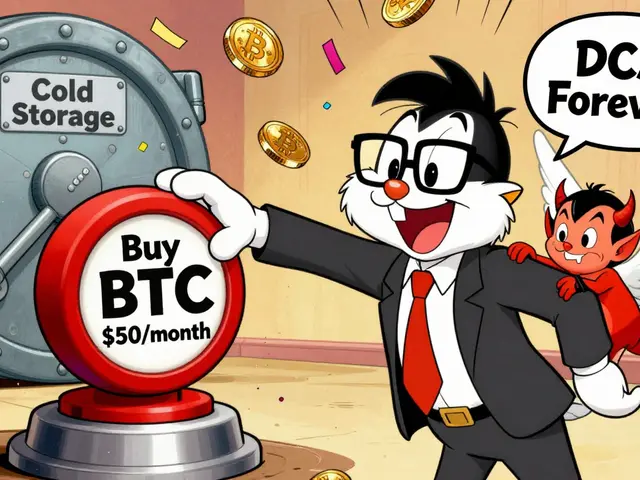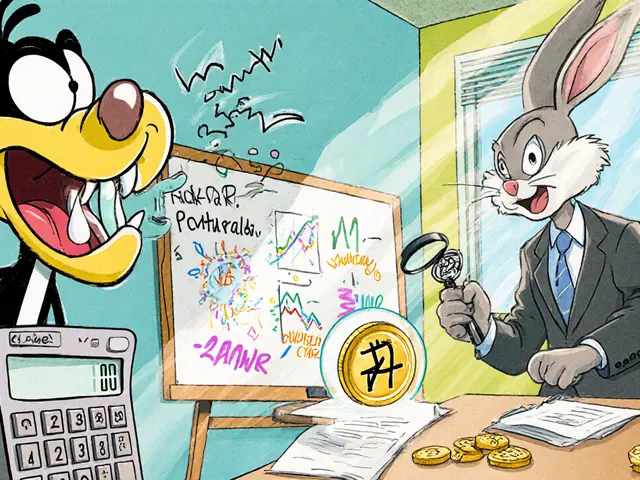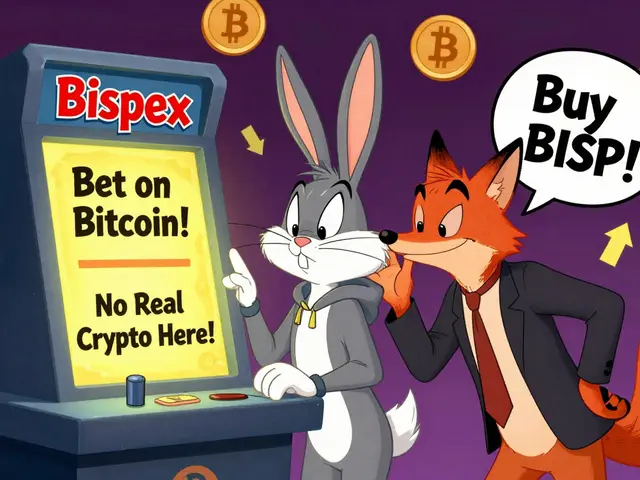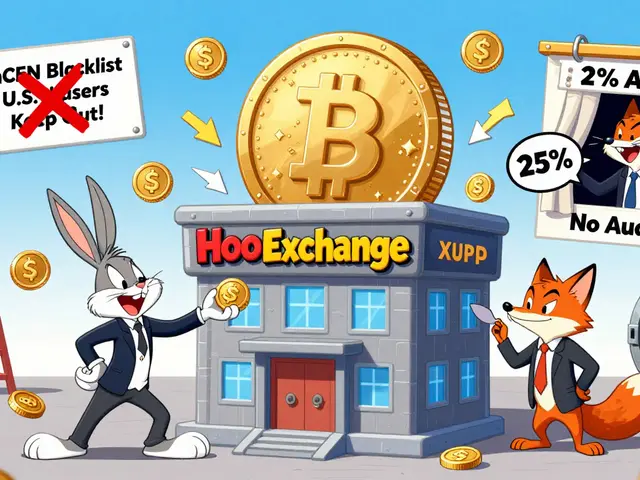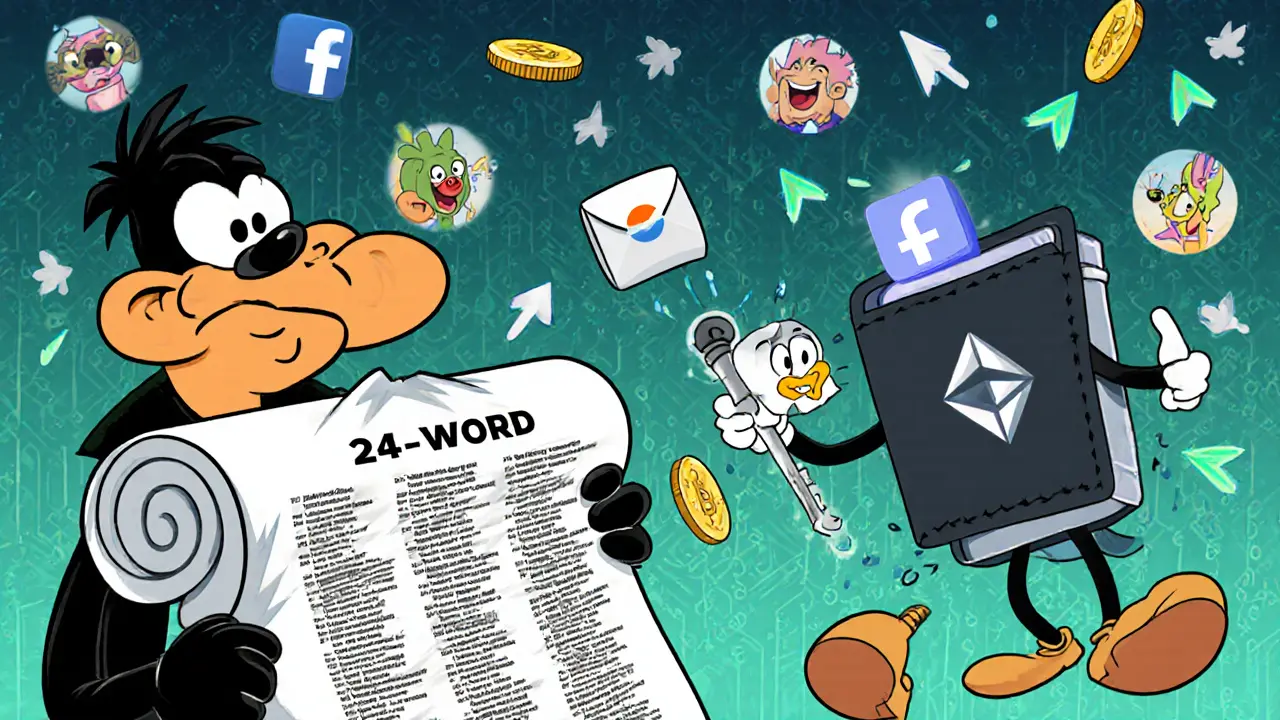
Gas Fee Calculator: Account Abstraction vs Traditional Wallets
Imagine logging into your crypto wallet using your email instead of a 24-word seed phrase. What if you could send crypto without buying ETH for gas? Or recover your funds after losing your phone - without calling a support team or praying to the blockchain gods? That’s not science fiction. It’s account abstraction - and it’s already here.
How Traditional Blockchain Accounts Work (And Why They’re Broken)
For years, blockchain wallets have worked the same way: you get a private key. That’s it. No backups. No resets. No second chances. Lose that key? Your $10,000 in ETH? Gone forever. This isn’t a bug - it’s the design. These are called Externally Owned Accounts (EOAs), and they’re the backbone of Ethereum and most other blockchains. EOAs are simple. They’re controlled by a single private key. No logic. No rules. Just a cryptographic signature that says, “Yes, I own this.” That sounds secure - until you realize there’s no safety net. If your phone dies, your laptop gets stolen, or you forget your password, you’re locked out. No recovery. No help. Just silence. And then there’s gas. Every transaction needs ETH to pay for it. If you’re new to crypto and you want to swap tokens, you first need to buy ETH just to pay the fee. It’s like needing a credit card just to walk into a store. For non-tech users? Confusing. For millions? a dealbreaker. Contract Accounts, the other type of traditional account, can run smart contracts - but they can’t start transactions on their own. They need an EOA to trigger them. So even if you have a fancy wallet with multi-sig rules, you still need a private key to make it move. It’s like having a smart lock on your house… but you still need a physical key to turn it.What Is Account Abstraction? (It’s Not Magic - It’s Code)
Account abstraction flips this entire model. Instead of relying on private keys to control everything, it lets your wallet be a smart contract. That means it can have rules. Logic. Memory. Recovery. Automation. The standard that made this real is ERC-4337. Launched in 2023, it didn’t change Ethereum’s core code. Instead, it added a new layer on top - a way for smart contracts to act like wallets without needing a hard fork. This is huge. It means existing wallets like MetaMask can slowly upgrade without breaking everything. With account abstraction, your wallet isn’t just a key. It’s a programmable agent. You can set rules like:- “Only allow spending $500 per day.”
- “Require 2 out of 3 friends to approve any transaction over $1,000.”
- “If I don’t log in for a year, send everything to my sister.”
- “Let this game app spend my tokens for 24 hours - then lock it again.”
Gasless Transactions: The Silent Revolution
One of the biggest pain points for new users? Gas fees. You need ETH to pay for transactions. But what if you’re holding SOL, AVAX, or even USDC? Do you have to buy ETH just to interact with an Ethereum dApp? That’s absurd. Account abstraction solves this with sponsored transactions. A dApp (like a game or NFT marketplace) can pay the gas fee for you. Your wallet sends the transaction - but the fee is covered by the app. You don’t need ETH. You don’t even need to know what gas is. This isn’t just convenient. It’s transformative. It removes the first real barrier to entry. You don’t need to be a crypto expert to use a blockchain app. You just need an email or a phone number. Platforms like SKALE Network and Sui have taken this further. Sui uses zkLogin - a zero-knowledge proof system that lets you log in with Google or Apple. No private keys. No seed phrases. Just your existing account. SKALE offers 700 transactions per second with zero gas fees. It’s not Ethereum - but it proves the future doesn’t have to look like 2017.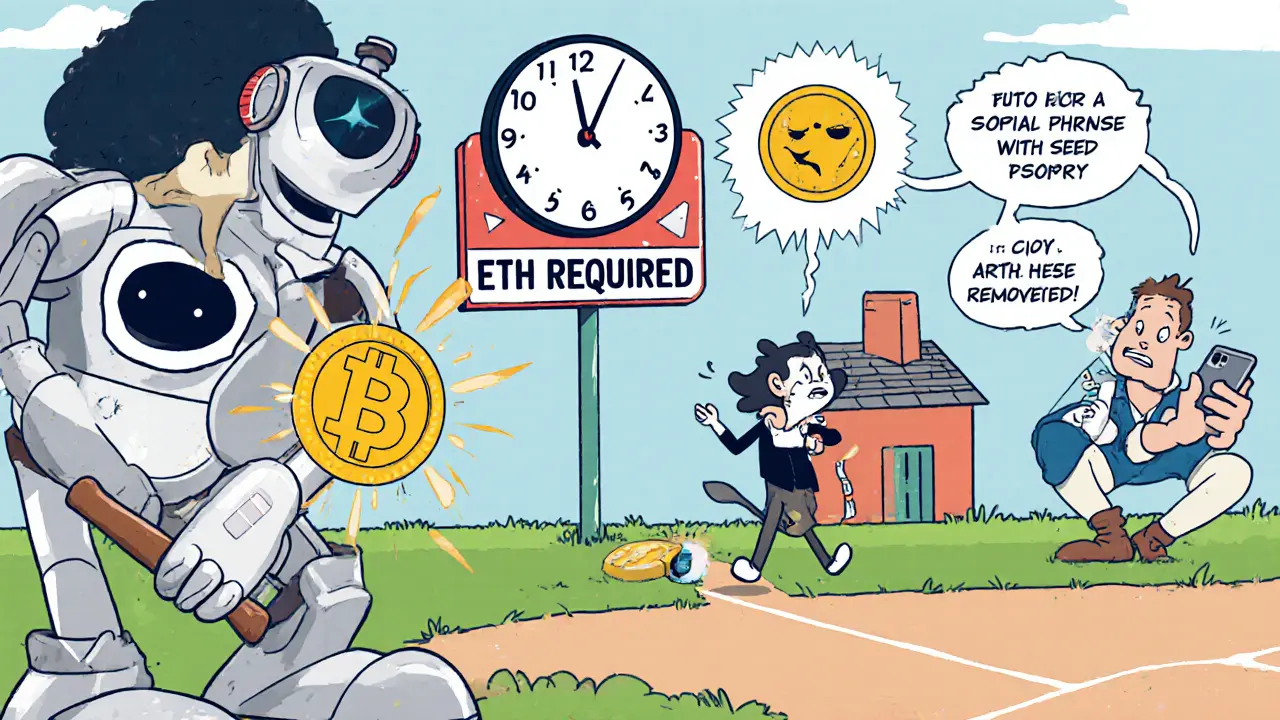
Security: From Single Points of Failure to Smart Guards
Traditional wallets are single points of failure. One key. One password. One mistake. Done. Account abstraction turns wallets into security systems. Here’s how:- Multi-signature (multi-sig): Require 3 of 5 trusted people to approve a withdrawal. Even if one key is stolen, your funds are safe.
- Session keys: Allow a game or DeFi app to spend a limited amount of your tokens for a set time. Then it auto-revokes. No more giving full access to a dApp.
- Dead man’s switch: If your wallet goes quiet for 12 months, it auto-sends funds to a beneficiary. No one can access it - unless you’re alive and active.
- Signature abstraction: You’re no longer stuck with ECDSA (Ethereum’s old signature method). You can use any algorithm - even biometrics or hardware tokens.
How Different Blockchains Are Doing It
Account abstraction isn’t just an Ethereum thing. Different chains are solving it in different ways:- Ethereum (ERC-4337): The most widely adopted. Works with existing wallets. Uses Smart Contract Accounts (SCAs) as programmable wallets. Still needs an EOA to initiate the first transaction - but that’s changing.
- Sui: Built from the ground up with account abstraction. Uses the Move language. Your wallet is a smart contract by default. zkLogin + sponsored transactions = seamless onboarding.
- SKALE: Focuses on performance and zero gas. 400+ TPS, 268 million gas block limits. No need for users to hold native tokens.
- BNB Chain, Polygon: Are testing ERC-4337 integrations. Most major platforms are evaluating adoption.
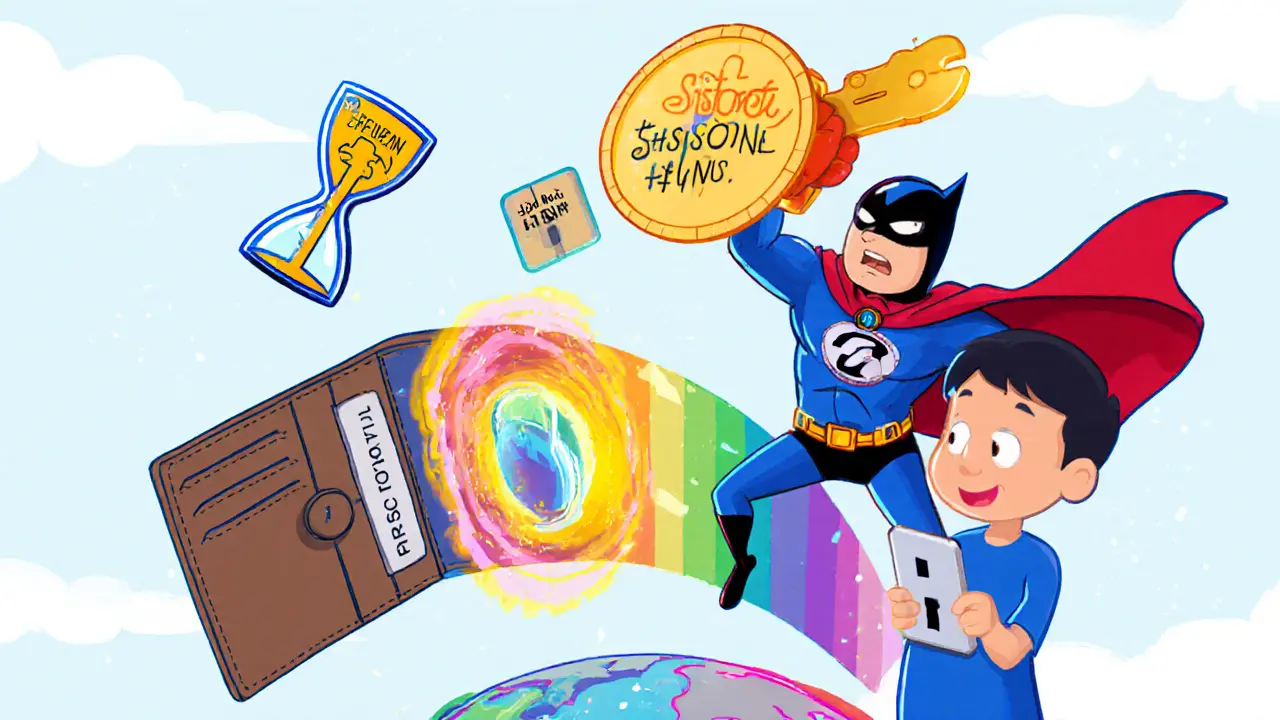
Why This Matters for Mainstream Adoption
Crypto isn’t failing because of technology. It’s failing because of user experience. Most people don’t care about decentralization. They care about not losing money. About not having to memorize 24 words. About not needing to buy ETH to use an app. Account abstraction fixes all that. It turns blockchain wallets into something people already understand: apps. Like Gmail, Apple Pay, or Venmo. You don’t need to know how they work. You just use them. Companies like Coinmetro and Blockchain App Factory are calling this “the future of crypto wallets.” And they’re right. The next billion users won’t come from crypto forums. They’ll come from TikTok, from mobile games, from shopping apps - if the wallet feels normal.The Catch? It’s Still Early
Don’t get it twisted. Account abstraction isn’t perfect yet. Most wallets still require an EOA to deploy the smart contract wallet. That’s a temporary hack. The goal is to eliminate EOAs entirely - and that’s still in progress. Smart contracts are more complex. If you code a rule wrong, you could lock yourself out. There’s no “forgot password” button - but there’s also no “help desk.” Security is better - but only if you set it up right. A poorly configured multi-sig wallet can be just as dangerous as a single key. And not all dApps support it yet. But the direction is undeniable. The industry is moving fast. Wallets are getting smarter. Users are demanding simpler experiences. And the tech is catching up.What’s Next?
In the next 12-18 months, you’ll see:- Major exchanges (Coinbase, Kraken) offering account abstraction wallets.
- Mobile apps letting you log in with Face ID - and your wallet auto-creates.
- DeFi platforms with built-in spending limits and auto-recovery.
- Game developers using session keys so players can trade NFTs without ever seeing a seed phrase.
What’s the difference between an EOA and a Smart Contract Account?
An EOA (Externally Owned Account) is controlled by a private key and can only send basic transactions. It can’t run code or have rules. A Smart Contract Account (SCA), used in account abstraction, is a programmable wallet that can have logic - like multi-sig, spending limits, or auto-recovery. It doesn’t need a private key to function, though it often starts with one during setup.
Can I recover my wallet if I lose my phone with account abstraction?
Yes - if it’s set up that way. Traditional wallets? No. With account abstraction, you can enable social recovery. You pick 3-5 trusted contacts (friends, family). If you lose access, they help you reset your wallet. Some wallets even let you use email or phone verification. No seed phrase needed.
Do I still need ETH for gas with account abstraction?
Not necessarily. With sponsored transactions, a dApp (like a game or NFT marketplace) can pay your gas fee. You send the transaction, but they cover the cost. Some blockchains like SKALE and Sui eliminate gas fees entirely. You can even pay with USDC or other tokens - not just ETH.
Is account abstraction safe?
It can be safer - if configured correctly. Multi-sig, session keys, and recovery options reduce risks like theft or loss. But bad code can create new vulnerabilities. A poorly built smart contract wallet could lock you out or let someone bypass your rules. Always use well-audited wallets like Safe or UniPass, not experimental ones.
Which wallets support account abstraction right now?
Yes. Wallets like Safe (formerly Gnosis Safe), UniPass, Biconomy, and Argent support ERC-4337. Sui’s native wallets use account abstraction by default. MetaMask is testing integration. Coinbase Wallet and Ledger are also exploring it. Most major wallets are moving toward it in 2025.
Will account abstraction replace traditional wallets?
Eventually, yes. For new users, it’s already the better option. For long-time crypto holders, it’s optional - but becoming more compelling. As dApps adopt gasless payments and social recovery, EOAs will fade. The goal isn’t to force change - it’s to make the old way feel outdated.

